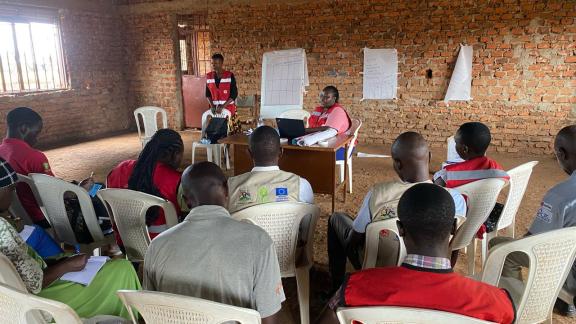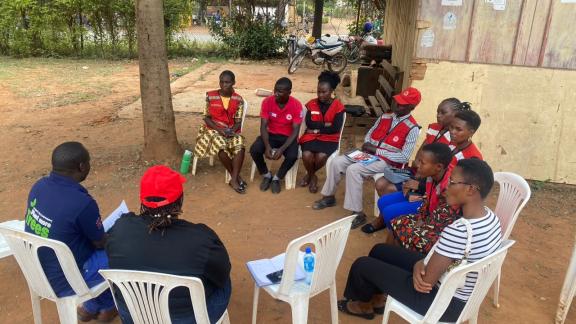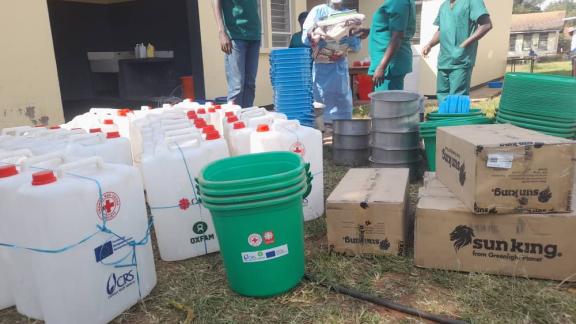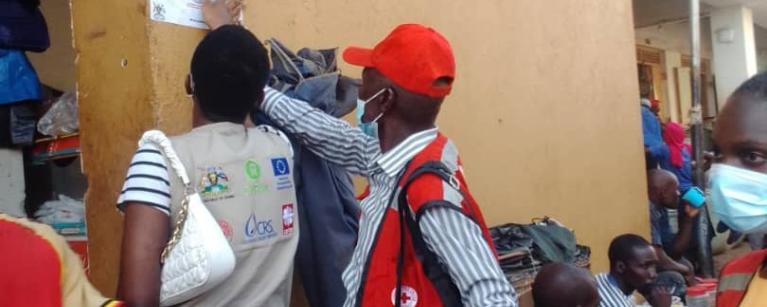On January 30, 2025, the Uganda Ministry of Health declared an outbreak of Ebola, Sudan virus disease (SDV), following the death of a health worker who exhibited signs and symptoms confirmed by tests for SDV.
The announcement of the outbreak sent shockwaves throughout the country, particularly as it was already grappling with Mpox and cholera in some districts amid ongoing social and economic challenges. According to the World Health Organization, Ebola is a severe disease with a high fatality rate ranging from 41% to 70%.
This marks the 8th Ebola Virus Disease Response in Uganda following the memories of the 2023 Ebola outbreak, which devastated families and claimed the lives of approximately 55 people.
In a region frequently affected by landslides, floods, and mudslides, an outbreak like Ebola further strains an already fragile region. A timely and coordinated response was critical to preventing the transmission and mortality of Ebola Virus Disease (EVD). The Ministry of Health (MoH) deployed a rapid response team, but more support from partners was necessary.

Rachael Nabuyaka, a community volunteer from Nambiti B Village, Bungokho Sub-County, Mbale District, underwent training on the proper Standard Operating Procedures (SOPs) that communities must follow to protect themselves from Ebola.
With support from the European Civil Protection and Humanitarian Aid Operations (ECHO), Oxfam and the Uganda Red Cross Society (URCS) activated the Crisis Modifier from the Disaster Preparedness project currently underway in the region. Oxfam and consortium partners employ "Crisis Modifiers" to facilitate rapid and flexible responses to humanitarian crises, enabling swift funding and resource deployment, especially for smaller or medium-sized crises.
This allowed Oxfam and the URCS to collaborate with the MoH and the district Local Government to implement crisis intervention measures aimed at containing the transmission, mortality, and mobility of the deadly virus among vulnerable populations in the Mt. Elgon Region.
The focus was on the following pillars: Risk communication, Community engagement, establishing Community-based surveillance, Infection Prevention and Control through Water, Sanitation and Hygiene and addressing misinformation. URCS volunteers were urgently needed to support the wide outreach to vulnerable communities with some of these activities.
In Nambiti B Village, Bungokho Sub-County, Mbale District, Racheal Nabuyaka, a volunteer was ready for the challenge. She underwent training on the proper Standard Operating Procedures (SOPs) that communities must follow to protect themselves from Ebola.

This is not Rachael’s first experience in volunteering. She has been volunteering under the Oxfam-led consortium, contributing to the implementation of the ‘Early Warning, Early Action, Strengthening Multi-Hazard Disaster Preparedness in the Mt Elgon Subregion’ – funded by ECHO, aimed at strengthening community preparedness and response to disasters.
Racheal and other Community-Based Surveillance (CBS) volunteers have been actively sensitizing communities about Ebola disease and the SOPs. They carry out door-to-door sensitization, visiting households, health centers, boda-boda stages, schools, and market areas to engage and converse with the people directly.
Their main message is centered on preventing the Ebola disease, sensitizing communities on three key actions: risk communication, community engagement, and proper handwashing, as Ebola spreads through contact with bodily fluids.
“We distribute soap to households, schools, and marketplaces and put up IEC (Information, Education, and Communication) materials that explain Ebola transmission, prevention, and symptoms in classrooms and boda-boda shelters”
Other key intervention measures include installing handwashing facilities in strategic locations such as health centers, quarantine stations, and public areas. Additionally, the initiative supports the distribution of personal protective equipment (PPE) to frontline workers and provides essential sanitation supplies, such as chlorine, soap, and hand sanitizers.
During community engagements, Racheal says that volunteers listen to people’s perspectives on Ebola, address myths, and correct misinformation. ‘’It is encouraging to see that after our discussions, people start asking the right questions and commit to following the SOPs. When we return to communities and find functional handwashing stations, we know our efforts are making an impact,’’ she says.

Some of the PPEs that were distributed to the quarantine centres
The CBS volunteers supplement the work conducted by the district health departments and village health teams (VHTs) in sensitizing communities. ‘’Since we are not medical professionals, we guide people on where to seek medical care if they notice symptoms, and we also share toll-free numbers provided by the Ministry of Health for their reference,’’ Rachel explained.
‘’We have a strong working relationship with the local, religious and cultural leaders, who have welcomed us into their communities. Without their support, some people might have believed that we were bringing the disease instead of helping to fight it.
So far, the efforts have proven effective, and the spread of the disease in the district has been controlled. Rachael attributes this to the rapid response. However, she believes modeling good hygiene practices and keeping communities informed should not wait for outbreaks.
“Community sensitization should be a continuous effort. ‘’We should not wait for an outbreak to take action.” Racheal says.
Rachael works with 20 other volunteers who have devoted their time to bringing information closer to the people to keep them safe.
With European Civil Protection and Humanitarian Aid Operations support, Oxfam and the Uganda Red Cross Society activated crisis intervention measures to contain the transmission, mortality, and mobility of the deadly virus among the vulnerable people in the Mt. Elgon Region. The initiative was implemented for three months to improve Infection Prevention and control (IPC) through WaSH, enhance capacity through risk communication and community engagement, establish community-based surveillance, and address misinformation.
